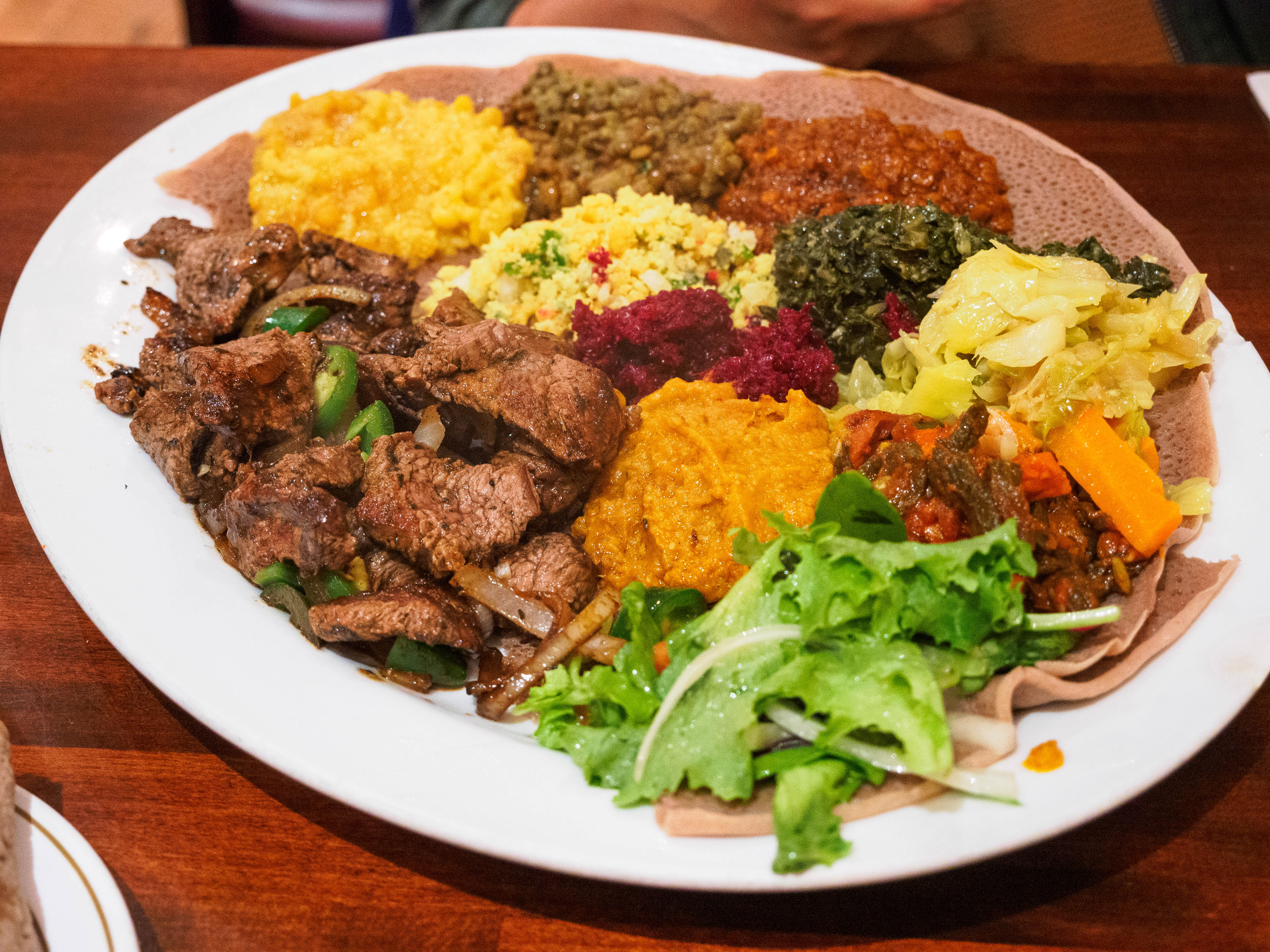MOVE over Mediterranean diet – there’s a new eating plan that’s better at driving away disease.
The traditional diet has been “severely underrepresented” in research – but now scientists say it could ward off cardiovascular disease, type 2 diabetes and even some cancers.
Mediterranean food – in which olive oil, fruit and veg and wholegrains feature heavily – is constantly cited by experts as one of the healthiest eating regimens to follow.
Studies link the diet to smaller waistlines, a reduced risk of diabetes, stroke and cancer and better odds of living longer.
But new research suggests that African cuisine – rich in vegetables, legumes, ancient grains and fermented foods – could be equally protective.
A study, published in Nature Medicine, found that shifting to a diet typical of what’s eaten in the East African country of Tanzania for just two weeks dramatically reduced inflammation in the body.
Read more on diet
Researchers believe the ‘African diet’ may also lower the risk of heart attacks, strokes and diabetes – as proteins in the blood linked to these conditions also fell among participants.
It comes as Western eating habits are increasingly adopted across Africa, coinciding with a surge of cardiovascular diseases, diabetes, and chronic inflammatory conditions, according to scientists from the Radbound University Medical Centre and KCMC University in Tanzania.
Dr Quirijn de Mast, an associate professor in global health at Radboud University in Nijmegen, said: “Previous research has focused on other traditional diets, such as the Japanese or Mediterranean diet.
“However, there is just as much to learn from traditional African diets, especially now, as lifestyles in many African regions are rapidly changing and lifestyle diseases are increasing.
Most read in Health
“Africa’s rich diversity in traditional diets offers unique opportunities to gain valuable insights into how food influences health.”
Researchers recruited 77 healthy men from North Eastern Tanzania, who either lived in the rural village of Uru Shimbwe Juu and followed a traditional diet or the nearby town of Moshi and followed a Western-style diet.
Twenty-two participants who tended to follow an African diet switched to a Western diet for two weeks, chowing down on bread and butter and milky tea for breakfast, pizza or eggs and chips for lunch and roast beef and mash for dinner.
Meanwhile, 22 men who ate a Western diet adopted a traditional African diet.
It included black tea and boiled cassava or millet porridge for brekkie, maize or rice with beans for lunch, and fish and veggies for dinner.
“The African diet includes plenty of vegetables, fruits, beans, whole grains, and fermented foods,” Dr de Mast said.
A further 22 were also asked to drink Mbege, a traditional fermented banana drink, for a week.
Men who maintained their western-style and African-style diets were also included as controls.
Researchers analysed how the men’s immune systems were working, and tracked blood proteins related to inflammation and metabolism at the start of the study, after the two-week intervention, and again four weeks later.
They found that men who switched to a Western diet had increased levels inflammatory proteins in their blood and their immune cells responded less effectively to pathogens.
Foods common to the African heritage diet
Food of course varies by region across the African continent.
But here are ingredients commonly included in the African heritage diet.
- Leafy greens: Beet greens, callaloo, collard greens, turnip greens, kale, spinach, watercress, dandelion greens, mustard greens and cassava leaves
- Vegetables: Asparagus, beets, Brussels sprouts, broccoli, carrots, eggplant, garlic, onions, pepper, okra, squashes, jicama and green beans
- Fruits: Baobab (or baobab powder), bananas, plantains, blackberries, blueberries, avocado, figs, guava, lemons, mangoes, oranges, plums and watermelon
- Tubers: Cassava, potatoes, sweet potatoes, yams and yuca
- Whole grains: Amaranth, barley, couscous, fonio, maize, corn, millet, rice, sorghum, teff and wild rice
- Beans: Black-eyed peas, broad beans, butter beans, chickpeas, cowpeas, kidney beans, lentils, lima beans and pigeon peas
- Nuts and seeds: Benne (or sesame) seeds, Brazil nuts, cashews, coconuts, peanuts, groundnuts, pecans, pumpkin seeds and sunflower seeds
- Herbs and spices: Cider vinegar, annatto, arrowroot, bay leaf, cinnamon, cilantro, cloves, coconut milk, dill, ginger, mustard, nutmeg and paprika
- Fish and seafood: Catfish, cod, crayfish, dried fish, mackerel, mussels, oysters, prawns, trout, sardines, shrimp and tuna
- Poultry, eggs and meat: Chicken, eggs, beef, lamb and turkey
- Oils: Coconut oil, olive oil, palm oil, peanut oil, sesame oil and shea butter
- Dairy: Buttermilk, yogurt, almond milk, rice milk and soymilk
Source: Eating Well
Meanwhile, those who switched to a traditional African diet or consumed the fermented drink had reduced inflammatory markers.
Some of these effects persisted even four weeks later, indicating that short-term dietary changes can have long-lasting effects.
Dr de Mast said: “Our study highlights the benefits of traditional [African] food products for inflammation and metabolic processes in the body.
“At the same time, we show how harmful an unhealthy Western diet can be.
“It typically consists of processed and high-calorie foods, such as French fries and white bread, with excessive salt, refined sugars, and saturated fats.
“Inflammation is at the root of many chronic conditions, which makes this study highly relevant for Western countries as well.”
Researchers wrote that plant-based diets and fermented foods “are increasingly recognised for their beneficial immune and metabolic effects”.
Read More on The Sun
Meanwhile, heavily processed and high-calorie foods typical of Western-style diets “drive metabolic dysfunction, systemic inflammation and long-term immune cell reprogramming”.
Research has previously linked higher levels of inflammation with an increased risk of diseases including cardiovascular disease, type 2 diabetes and even some cancers.
Source: bing.com






















